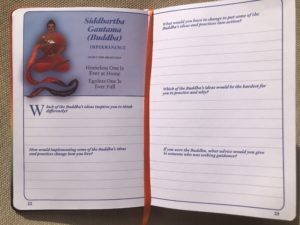 The Philosopher’s Deck Journal contains a set of five questions to guide your reflections on each of the 22 thinkers found in The Philosopher’s Deck. Along with the questions, you will find 6 blank pages per thinker where you can write down your thoughts and feelings as you converse with each thinker’s ideas. Reflecting on the wisdom of these thinkers will broaden your horizon of possibilities and vision on how to live a more meaningful and fulfilling life. Learning to apply these ideas will empower you to live more mindfully and more purposefully.
The Philosopher’s Deck Journal contains a set of five questions to guide your reflections on each of the 22 thinkers found in The Philosopher’s Deck. Along with the questions, you will find 6 blank pages per thinker where you can write down your thoughts and feelings as you converse with each thinker’s ideas. Reflecting on the wisdom of these thinkers will broaden your horizon of possibilities and vision on how to live a more meaningful and fulfilling life. Learning to apply these ideas will empower you to live more mindfully and more purposefully.
Only logged in customers who have purchased this product may leave a review.
You may also like…
-
Philosophy Wise, The Book
$4.00 – $18.00 Select options This product has multiple variants. The options may be chosen on the product page

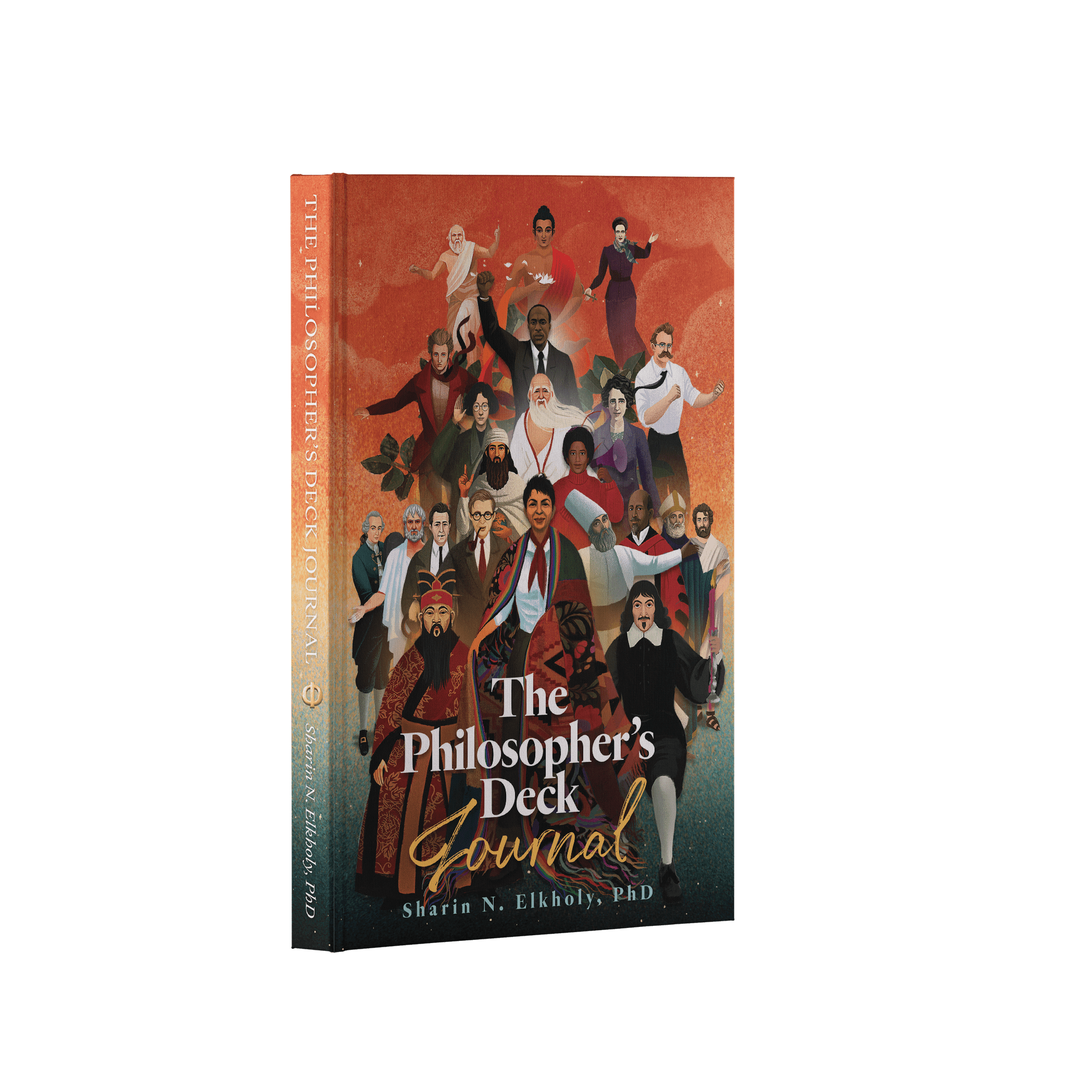
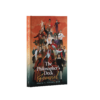
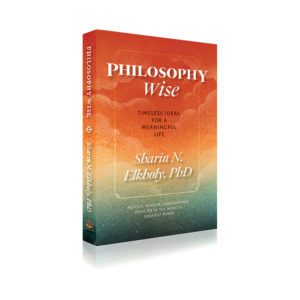
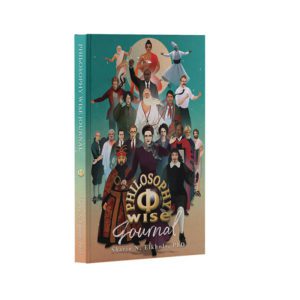
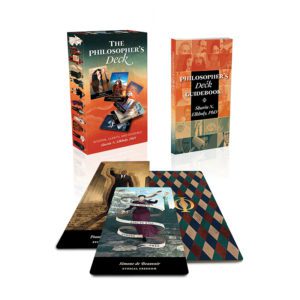
Reviews
There are no reviews yet.